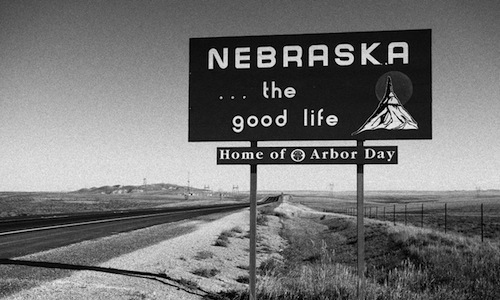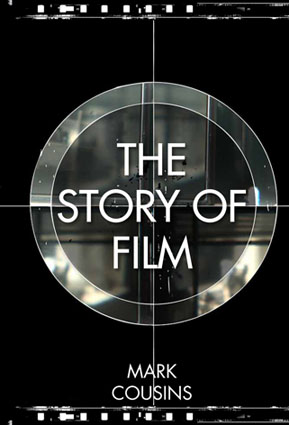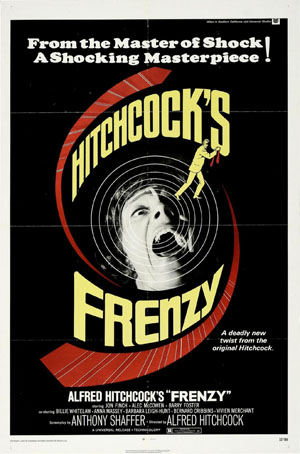Once again, we begin in New York, and today, specifically at the Film Society of Lincoln Center. For one thing, selections from the new issue of its magazine are up. The September/October Film Comment isn’t exclusively a preview of the 51st New York Film Festival, but it is that, too.
And this year’s NYFF is going to be a big, sprawling thing. Along with Main Slate, the docs and restorations, the warm-up series Opening Act, the transmedia, and Views from the Avant-Garde, there’ll be that launch of the Godard retrospective and the 20th anniversary presentation of Richard Linklater‘s Dazed and Confused. And on Friday, Brian Brooks posted one last NYFF programming announcement: “Richard Curtis (About Time), Paul Greengrass (Captain Phillips), Agnieszka Holland (Burning Bush) and Frederick Wiseman (At Berkeley) will participate in this year’s edition of NYFF’s annual HBO Directors Dialogues series, while James Gray (The Immigrant) will take part in the HBO On Cinema conversation. Organizers also announced that filmmakers Joanna Hogg (Exhibition) and Fernando Eimbcke (Club Sandwich) have been selected for a brand new festival section: Emerging Artists. Three films each by the two filmmakers will be screen during NYFF51. The fest also revealed the lineup for its four Shorts Programs.”
In Film Comment, Larry Gross argues that Nebraska is Alexander Payne’s “best, most complex, and most satisfying work to date.” Tony Rayns explains why Jia Zhangke‘s A Touch of Sin “is ‘political’ in exactly the same way as the King Hu wuxia films that partly inspired it.” And for Noel Vera, Norte, the End of History “feels like a capstone, a summation of everything [Lav] Diaz loves about and finds so profound in Dostoevsky, a transmutation of the writer’s melodramatic genius into grist for his more distanced, more emotionally chilled films.”
You’ll find more on films slated for NYFF 2013, but also reviews of films out in theaters and out on discs—and Howard Hampton‘s amazing personal reflection on growing up as the child of a stuntman in Hollywood. Secondhand “phantasmagorical tales of Hollywood tawdriness and of running guns from Mexico to Central America” give way to firsthand experiences of Los Angeles as “a wax museum for men and women clutching their brush-with-glory memories like pensioners with their tarnished gold watches and cobwebbed trophies,” and along the way, Hampton riffs wonderfully on Cassavetes, Lynch, Welles…
More news. Jon Jost has posted an open letter to Ray Carney now that the standoff between the Boston University professor and filmmaker Mark Rappaport has gone on for a full year. “So, sadly,” writes Jost, “I guess I join Mark in his resignation that you are simply not going to return his materials, for whatever mangled reasons you have.”
Slate‘s Dana Stevens is “psyched about Turner Classic Movies’ plan to show The Story of Film, Irish film critic and documentarian Mark Cousins’s massive 15-part history of the art form, over the course of the next few months…. The Story of Film, based on a 2004 book of the same title by Cousins, was released in 2011 and is also currently available in its entirety on Netflix. But it’s TCM’s beautifully chosen companion programming, which will feature 119 films discussed in the documentary (many of which might otherwise be difficult for viewers to find anywhere), that make this season-long rollout such an exciting cinematic event—the equivalent of a great college film survey course in your own living room.” More from David Kalat at Movie Morlocks.
More reading. Artforum has posted a major essay from its April 2009 issue in which P. Adams Sitney considers the oeuvre of Lawrence Jordan, who “has produced a massive body of work that encompasses several overlapping genres and includes many of the greatest films ever made by means of cutout collage animation, a range of lyric films that capture the spirit of his life and the lives of other California artists in the late 1950s and early ’60s, and films directly inspired by and incorporating poetry.”
Nicholas Rombes is launching a new five-part series at Filmmaker. Time Frames will “cull through and select a series of images and text from the collection” at the Media History Digital Library “to highlight key transformative moments in the film culture and industry, as well as other oddities and obscure artifacts.” Part One: “The Invention of Paramount Pictures.”
“Except for Twentieth Century Fox, headed by Darryl Zanuck, a shrewd and tough Gentile from Nebraska, the studios were run by Jews, who controlled many hectares of Los Angeles turf and worldwide distribution networks—an enormous power base that makes their timidity regarding Nazism a matter of psychological and cultural as well as political interest.” David Denby in the New Yorker: “In recent years, a variety of scholars, including Neal Gabler, J. Hoberman, Jeffrey Shandler, Lester D. Friedman, Steven Carr, and Felicia Herman, have worked on different aspects of this complicated history. But the story has been charged up by the appearance of two new books: The Collaboration: Hollywood’s Pact with Hitler (Harvard), by Ben Urwand, a junior fellow of the Society of Fellows at Harvard; and Hollywood and Hitler, 1933-1939 (Columbia), by Thomas Doherty, a professor of American studies at Brandeis. Doherty’s book is much the better of the two.”
At Sundance Now, Nick Pinkerton goes long on “a late-period Hitchcock film which I rank among his greatest, not in spite of but because of its frank nastiness. Without downplaying the accomplishments of New Hollywood or the American New Wave or whatever you want to call it, some of the most essential movies of the much-mythologized post-Bonnie and Clyde period were the result of Old Hollywood being challenged and revitalized by new methods and new competition, as well as the loosening of censorship, which allowed certain long-stymied artists to express their worldviews in the starkest possible of terms. John Huston’s 1971 Fat City is one such case in point; another is 1972’s Frenzy.”
Ian Olney argues that the recent wave of Spanish horror movies has “provided us with an unbroken line of female protagonists dedicated to exposing and combating the monstrous-masculine.” Also in Film International, Will Dodson suggests that “Wes Craven’s Scream 4 is in many ways a fitting capstone to the 9/11 decade”—and Cleaver Patterson: “In the history of cinema, films that have proved their longevity are usually those encompassing qualities that last in the viewer’s consciousness long after they finish, revealing new and deeper detail no matter how often you watch them. Nosferatu—or to give the film its full title, Nosferatu, eine Symphonie des Grauens (Nosferatu: A Symphony of Horror) is a trip which reveals endless visual delights and psychological detours with each repeated visit.”
For the Los Angeles Times, J. Hoberman reviews Dissident Gardens, “Jonathan Lethem‘s rich, grotesque and tender family saga, the latest, most pungent of his accounts of growing up absurd in New York City.”
New York. “Two years ago, when happenstance delivered a broadcast of Howard Hawks’s 1959 Western, Rio Bravo, on Jean-Luc Godard’s birthday, I discussed Hawks’s influence on Godard,” recalls the New Yorker‘s Richard Brody. “Now fortune comes to the rescue again, as the opening of the Howard Hawks retrospective at the Museum of the Moving Image coincides with a two-week revival of Godard’s Contempt, from 1963, at Film Forum. The coincidence makes perfect sense: Contempt is Godard’s most Hawksian film.” He elaborates.
Diagrams. In the New York Times‘ mouseover thingie, “Constellations of Directors and Their Stars,” a “selection of notable directors are shown with actors they cast in at least four films.”
In the works. “Looks like director Werner Herzog is going to get a new Queen of the Desert,” notes Deadline‘s Mike Fleming Jr. “I’m hearing that Naomi Watts is exiting the film about the early 20th Century explorer Gertrude Bell, and that Nicole Kidman is in talks to take the plum role.”
Watts, in the meantime, has turned up elsewhere. Errol Morris will be directing her in his next narrative feature, Holland, Michigan, about “a woman who suspects her husband is cheating, starts her own affair and then discovers her husband is a serial killer.” Rodrigo Perez has more at the Playlist.
“Holly Hunter will star opposite Al Pacino in David Gordon Green’s drama, Manglehorn,” reports Variety‘s Dave McNary. It’s the story of “an eccentric man who tries to come to terms with a past crime that cost him the love of his life.” Also on board are Harmony Korine and Chris Messina.
And: “Gemma Arterton and Tim Roth are heading to London, starring in the crime thriller The Keys to the Street, adapted from Ruth Rendell’s novel by Christopher Nolan and Michael Stokes. Filming is set to start in the first quarter with Czech director Julius Sevcik lensing.”
“In an amazing confluence of Tumblr masturbation fantasies, Tom Hiddleston will be replacing Benedict Cumberbatch in Guillermo del Toro’s gothic ghost story Crimson Peak,” reports Vulture‘s Margaret Lyons.
Sebastián Silva will direct Kristen Wiig in Nasty Baby, reports Variety‘s Elsa Keslassy: “An edgy and colorful drama set in New York, Nasty Baby centers on a gay couple, Freddy (Silva) and Mo (Tunde Adebimpe), who embark on a doomed mission to have a baby with the help of their best friend, Polly (Wiig), a family practitioner.”
More browsing? See the cinetrix (who’s got some viewing as well), the Film Doctor (don’t stretch that haitus too long!), and John Wyver. Meantime, most of the entries on the films listed in the Venice and Toronto indexes have been updated quite a bit since you last took a look at them.
For news and tips throughout the day every day, follow @KeyframeDaily on Twitter and/or the RSS feed. Get Keyframe Daily in your inbox by signing in at fandor.com/daily.







